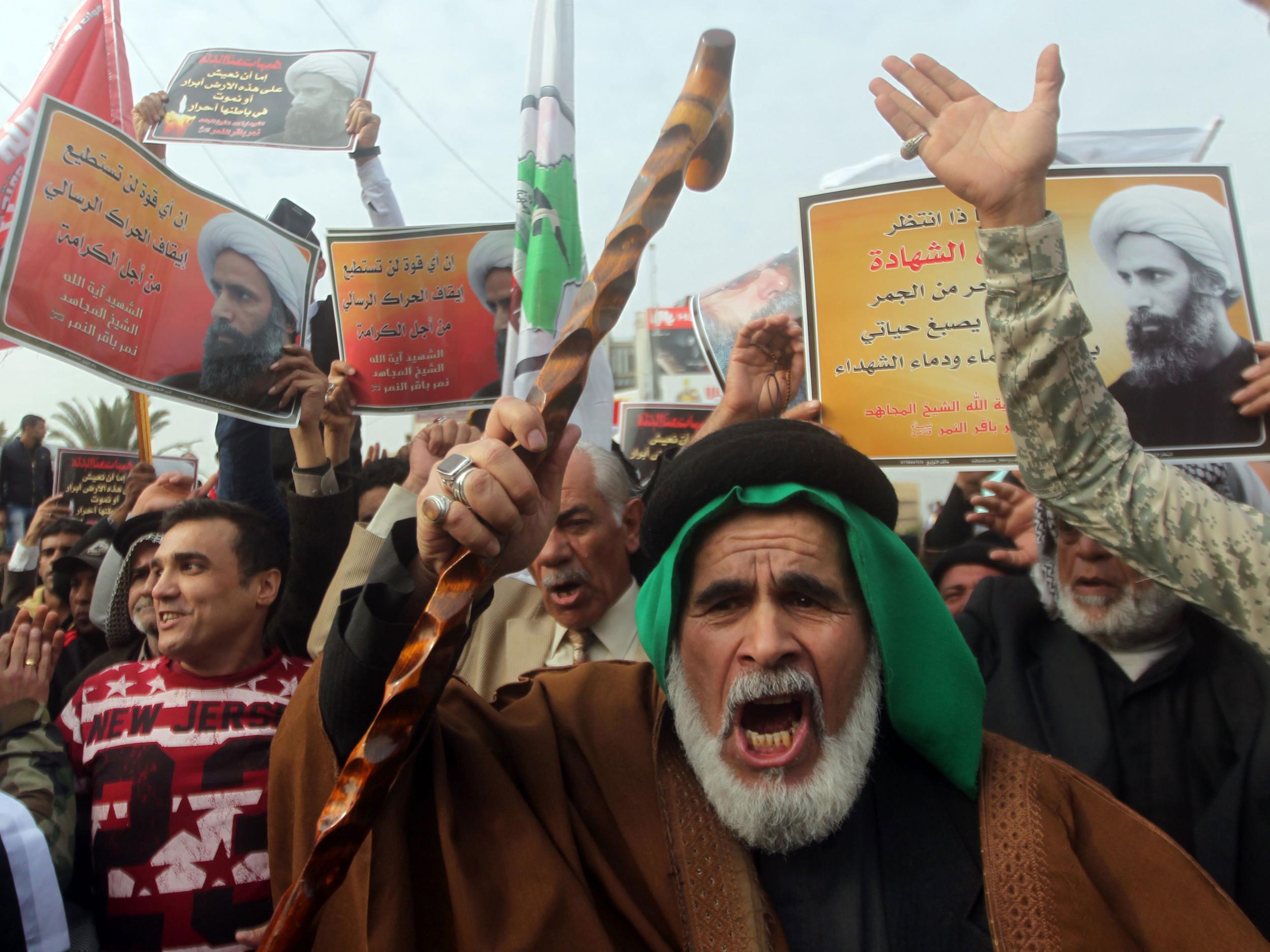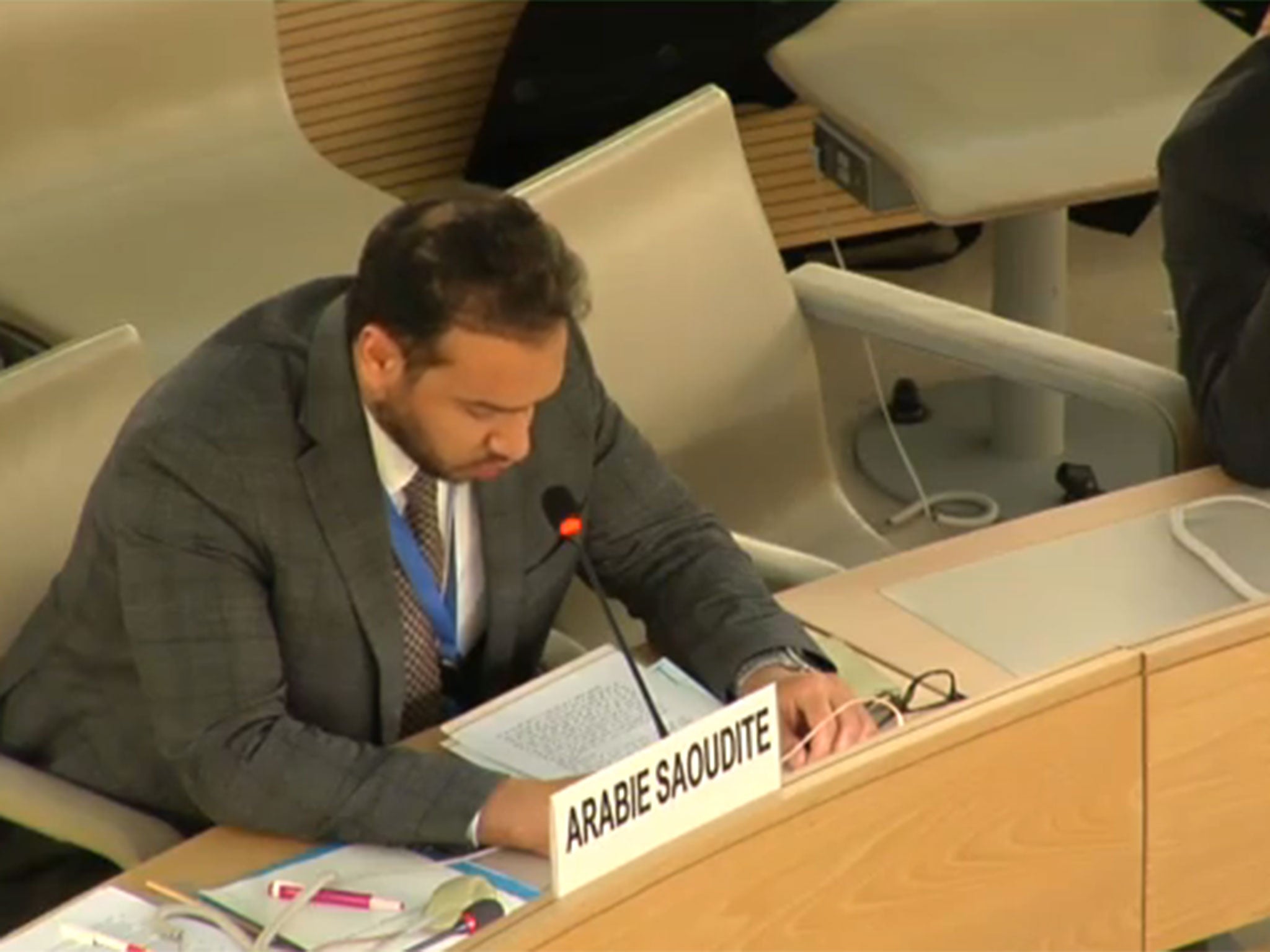Saudi Arabia issues extraordinary defence of human rights record in speech to UN council
A Saudi official said the Kingdom was 'one of the first countries to promote human rights' and 'fights torture in all its physical and moral manifestations'

Your support helps us to tell the story
From reproductive rights to climate change to Big Tech, The Independent is on the ground when the story is developing. Whether it's investigating the financials of Elon Musk's pro-Trump PAC or producing our latest documentary, 'The A Word', which shines a light on the American women fighting for reproductive rights, we know how important it is to parse out the facts from the messaging.
At such a critical moment in US history, we need reporters on the ground. Your donation allows us to keep sending journalists to speak to both sides of the story.
The Independent is trusted by Americans across the entire political spectrum. And unlike many other quality news outlets, we choose not to lock Americans out of our reporting and analysis with paywalls. We believe quality journalism should be available to everyone, paid for by those who can afford it.
Your support makes all the difference.Saudi Arabia has issued a remarkable response to criticisms from the United Nations over its human rights record.
In a speech delivered to the UN in Geneva, the Saudi delegation rejected outright a UN report which strongly criticised the Kingdom’s increased use of death sentences and executions.
Bandar al-Ali, Saudi Arabia’s Minister of Culture and Information, claimed the Kingdom was a bastion of human rights, and “fights torture in all its physical and moral manifestations”.
In an annual report to the UN’s Human Rights Council, Juan Mendez, the Special Rapporteur on Torture, said it was becoming clear the escalating number of executions in the Kingdom amounted to torture and breached international law.

Mr Mendez raised particular concerns over the execution of juveniles in Saudi Arabia, as well as the use of the death penalty in response to political protests and drugs offences.
Responding, Mr Ali said: “Saudi Arabia is one of the very first countries which promoted human rights. Such a support and a commitment to promote and protect human rights is but a duty imposed by the Islamic sharia from which the statutes of my country is derived.
“My country fights torture in all its physical and moral manifestations through strict legislation and executive measures that are applied on all.
“[Government procedures code] prohibits any physical or psychological harm to be inflicted on an arrested person. It is also prohibited to subject [the accused person] to torture or degrading treatment.”
Mr Ali’s astonishing comments follow warnings by campaigners that the Kingdom is executing people at a “frightening” rate after it emerged Saudi Arabia had killed its 70th prisoner of the year on Monday, bringing the total number to almost half that of 2015.
Several advocacy groups monitoring the death penalty worldwide placed the figure at 157 last year, with beheadings reaching their highest level in two decades.
The Kingdom also came under intense criticism at the beginning of the year when it executed 47 people for “terrorism offences” in one day, including the prominent Shia cleric Sheikh Nimr al-Nimr who was a vocal supporter of the mass anti-government protests that flared in 2011.
Maya Foa, who is the head of the death penalty team at the human rights organisation, Reprieve, told the Independent: “Saudi Arabia's claims to the UN human rights council sound like a sick joke when one considers the reality within the country - including the arrest, torture and execution of juveniles, political protestors and others.
“Countries that are close to Saudi Arabia - including the UK - must urge that government to halt these terrible abuses, instead of simply trying to cover them up with paper-thin rhetoric."
Iran, Pakistan, Egypt and Ethiopia were also criticised in the report for their use of the death penalty.
Last year the UN was lambasted for choosing Saudi Arabia to head a key UN human rights panel.
The pro-democracy blogger Raif Badawi said at the time that the appointment was “scandalous” and meant “oil trumps human rights”.
Join our commenting forum
Join thought-provoking conversations, follow other Independent readers and see their replies
Comments